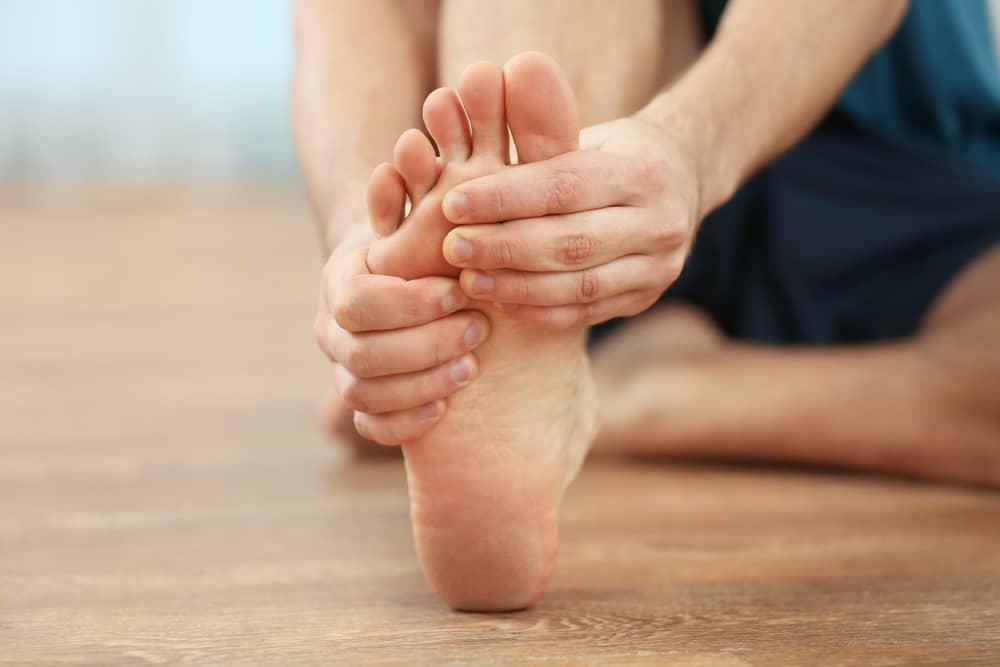
Pretty soon here in Tennessee, it will be springtime and you’ll be ready to run in the great outdoors.
Repeated stresses like running can create a painful foot condition known as plantar fasciitis. The plantar fascia tendon runs along the arch of the foot and essentially aids in connecting your heel bone to your toes; it’s what helps give your foot its arch support. Repeated stresses can often cause micro-tears in the band. It can also become inflamed, strained, and tight. Since this tendon helps maintain the arch of the foot and functions to absorb foot impact forces, you will likely feel a pulling sensation or even a sharp burning pain when you run. Some people even feel it when they take their first few steps after getting out of bed in the morning or after sitting for a long period of time. Unfortunately, if you have flat feet, the problem worsens, and wearing shoes with little to no arch support will only exacerbate the problem.
Plantar fasciitis can also be common in people who have naturally high arches or people who roll their feet inward when they walk (called excessive pronation). The problem can be exacerbated if you are overweight or you stand or move on hard surfaces for long periods of time. Plantar fasciitis is very common among middle-aged people but can occur in younger people, and can happen in one or both feet.
Tendon issues like this certainly won’t disappear overnight, but there are many preventative measures you can take to alleviate the problem or at least reduce the pain. First, wear proper shoes that give you arch support, cushioning for the sole of the foot, and plenty of toe wiggle room so your foot is not cramped all day. It is also important to vary your exercise routine; if you have heel or arch pain, don’t run every day. Mix it up to take some of the load off that tendon.
Ultimately, addressing the pain early is key to successful treatment and prevention of further injury.
If we determine you have plantar fasciitis, we offer a variety of treatment modalities, including chiropractic care, Active Release Technique (ART), laser therapy, and dry needling. We’ll recommend a proper at-home care program as well. This will most likely begin with the simple RICE method of rest, ice, compression, and elevation. We will suggest a stretching and mobility program as well to work towards increased flexibility in your calves and mobility in your ankles. We commonly suggest using a lacrosse or tennis ball at home to continue to try and release some of the tension in that tendon. If you have structural or functional gait issues like high arches, flat feet, or overpronation, we might recommend personalized custom orthotics to wear inside your shoes to relieve pressure.
If you’re experiencing foot pain, come see us at Knoxville Spine and Sports.
Dr. Bert will have you back on your feet in no time!

430 Montbrook Lane Suite 203
Knoxville, TN
37919
Phone: 865-337-5574
Monday
7am-12pm & 1pm-6pm
Tuesday
7am-12pm & 1pm-4pm
Wednesday
7am-1pm
Thursday
7am-12pm & 1pm-6pm
Friday
7am-12pm & 1pm-4pm
Saturday & Sunday
Closed